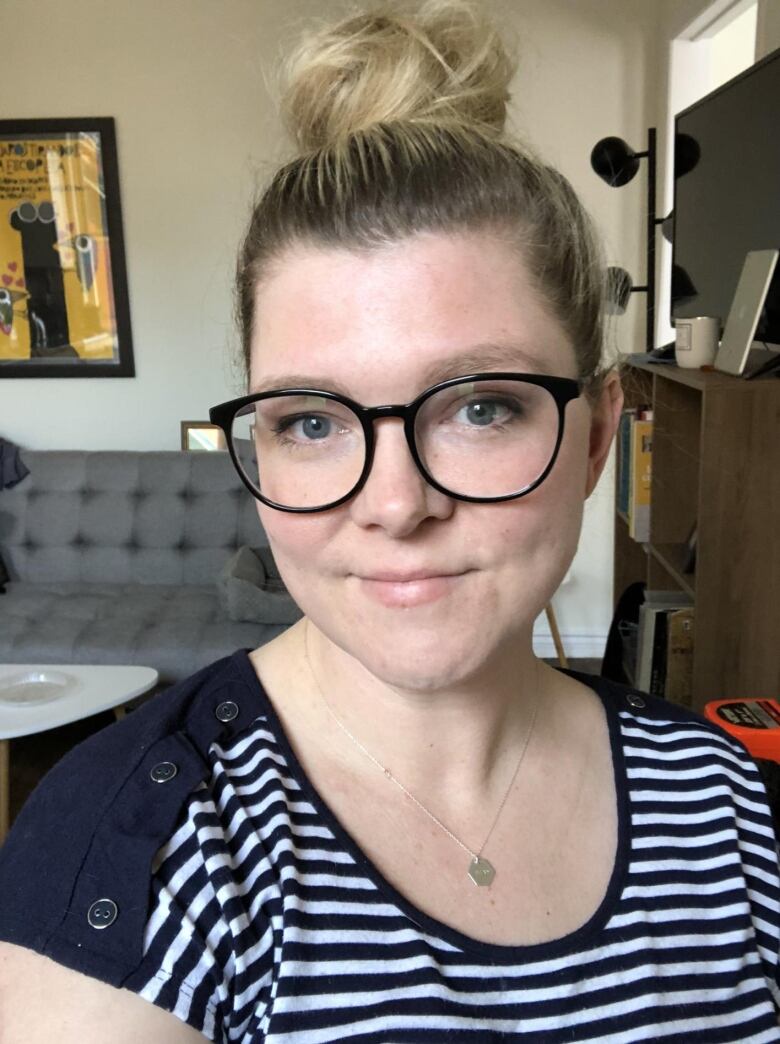Loss of wages while waiting and pleas for a spare online. This is what COVID-19 testing looks like
Ontario's chief medical officer of health to make an announcement at 3 p.m. ET

Pauline Klimek says her 46-year-old husband Joe wasn't looking too good a little over a week ago.
He was working at his job in Hamilton's sewage industry when Klimek says Joe's boss sent him home to get a PCR COVID-19 test after seeing he was drowsy.
Having used up sick days earlier in the year, unless Joe took his vacation days, he wouldn't be able to return to work — or get paid — until he received a negative test result. But tests have been hard to come by.
"There were only three sites in Hamilton that were offering appointments," the Hamilton-area woman told CBC Hamilton on Wednesday.
After being sent home from work on Dec. 22, he got an appointment on Dec. 27. Klimek said they waited for more than an hour in the freezing rain at Mohawk College before getting the test.
Three days later, after two calls with "frustrating" long waits to the province to find out where the test results might be, Klimek finally got through Thursday.
Results were in, after more than a week of lost wages: the test was negative.
Demand outweighing testing ability, says city
Waiting has become a common experience among those trying to get PCR tests and the results, with many complaining online about the inability to book appointments.
The surge in demand follows soaring COVID-19 cases thanks to the Omicron variant's ability to spread at a fast pace.
Dr. Kieran Moore, Ontario's chief medical officer of health, is set to make an announcement at 3 p.m. ET that may include "testing guidance" but specific details of the announcement are not yet known.
Meanwhile, City of Hamilton spokesperson Michelle Williams told CBC Hamilton testing centres aren't run by the city and operate under the direction of the province. According to the province, Ontario had 59,259 test samples waiting to be processed on Wednesday.
"Hamilton's health-care partners are doing extremely high volumes of COVID-19 testing," Williams wrote in an email.
"Even with the increased ability to test, demand for testing is far outweighing ability to keep up to the rapid increase in demand, and it is challenging for testing to happen in a timely way. This is a situation occurring in many communities across Ontario."
She also said anyone waiting for COVID-19 test results needs to self-isolate for 10 days and should inform close contacts if they develop symptoms.
If someone has mild symptoms, no underlying health conditions and doesn't work in high-risk settings (e.g. hospitals, congregate living, prisons, shelters) they don't need a PCR test and should assume they're positive, she said.
"Given the significant demand on centres, we ask that if individuals decide to cancel their appointments or cannot attend to please cancel the appointment online to give other individuals the ability to receive a test," Williams wrote.
Woman finds rapid test after pleading online
Getting rapid tests — which should be used for asymptomatic people and can only be considered a "preliminary positive," according to the province — has been a challenge for locals, too.
Earlier this month, the province supplied some LCBO locations with rapid tests, though the supply has since run out. It does host pop-up sites to hand some out, but the supply has not matched the demand.
Williams said local public health has no involvement in the province's pop-up testing blitz.

Hamilton resident Ashley Letts said she tried finding a rapid test after realizing the soonest PCR test would mean waiting a week-and-a-half.
She says she only had a sore throat, but wanted to be sure it wasn't Omicron. With no luck, she resorted to pleading with people on social media, asking if anyone had a test to sell or spare.
"It's ridiculous. I know we're in an unprecedented situation ... It doesn't make sense [that the province didn't] send the tests in the mail ... it's Hunger Games-y," Letts said.
Testing roll-out is inequitable: McMaster professor
Ameil Joseph, a member of the Hamilton Vaccine Readiness Network and a McMaster University associate professor with the faculty of social sciences, says the province's approach for COVID-19 testing doesn't do enough to consider which populations should be prioritized when it comes to access to testing.
"Who are most at risk? Where are we seeing more infections? Who should be prioritized? ... Without that kind of data and that kind of care, what we're looking at is the exacerbation of the existing inequities we've learned are getting worse throughout the pandemic and, of course, existed prior to that," he said.
He pointed to the fact that free tests are inaccessible, but options remain for those who can pay.
"It's a really messed up situation where those who now can't afford to pay $180 or so to get a PCR test, say at the Eaton Centre in Toronto, or pay $50 to get five rapid tests mailed to their house ... might not know if they're at risk to others or themselves."
Joseph said the city and the province need to invest more resources into public health and into higher risk populations. "We don't have collective understanding of who those folks are that are being disproportionately affected," he said.
With files from CBC News